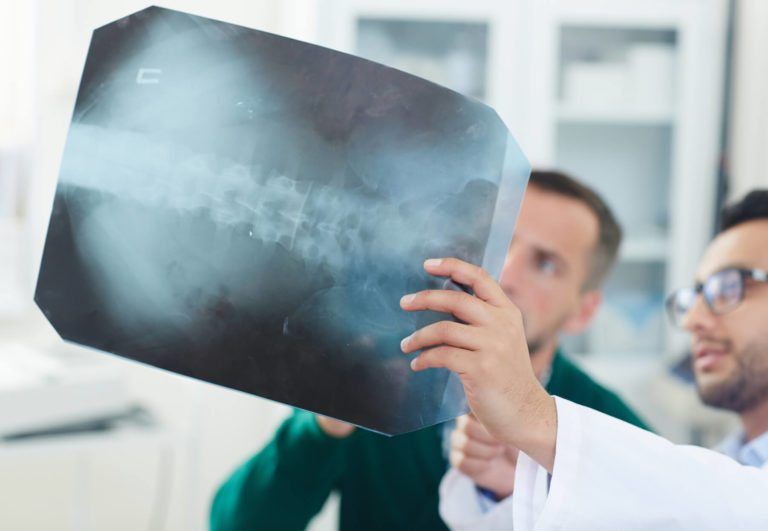Spinal Infections

One of the potential complications of spinal surgery are spinal infections. Spinal infections are incredibly rare occurrences that can happen in the intervertebral space, the individual bones of the spine, the spinal canal, or the soft tissues adjacent to the spine. There are various forms of spinal infections based upon where they appear, and they may be caused by bacteria, viruses, or even fungal organisms. They can occur in circumstances unrelated to spinal surgery, but they are also a potential complication of spinal surgery.
Typically these infections begin in the bloodstream and are bacterial in nature, spreading throughout the circulatory system and into the vertebral discs causing a form of spinal infection known as discitis. Discitis, if untreated, can lead to degeneration of the vertebral discs that, if left unchecked, can spread into the vertebral bodies adjacent to the discs resulting in an infection known as osteomyelitis. This can, in turn, lead to a weakening of the bones causing them to crumble. The infection or the fragments of crumbling bone can then end up in the spinal canal causing pressure on the nerves.
Spinal infections can be particularly dangerous if left untreated and can create damage that is difficult or impossible to treat. If you’re experiencing any symptoms associated with spinal infection, especially those indicated neural compromise, get to a physician immediately. In cases of symptoms of neural compromise, an emergency room visit may be prudent.
FAQ:
1. What kind of symptoms will I experience as part of a spinal infection?
Infections in the spine are often difficult to detect, following a slow course that can delay diagnosis. They typically begin with a tenderness in the back or neck, with movement based pain that can be treated with rest or medication. Other symptoms include fevers, chills, pain in the night, and loss of weight that is unexplained, though they’re uncommon especially in patients who are chronically ill. In advanced cases, the back pain will become severe with even limited movement. In cases caused by surgical procedures, the pain will often begin in just a few days or weeks following the surgery.
2. What should I do if I think I have a spinal infection?
In cases where you suspect a spinal infection, you should consult with Dr. Peelle, who will order laboratory evaluations and possible radiographic imaging studies if conditions require. Spinal infections can be particularly serious, so if you have cause to believe that you’re experiencing one, get to Dr. Peelle right away.
3. How are spinal infections treated?
Vertebral discs have a limited blood supply, creating a haven for bacteria that is difficult for the bodies immune cells and medications to reach. As a result, IV antibiotics are usually necessary for a period of six to eight weeks, often accompanied with a back brace to improve spinal stability for the duration of the infections healing. If this doesn’t properly treat the infection, then surgery may be necessary to treat the infection and prevent further damage to the spine.

